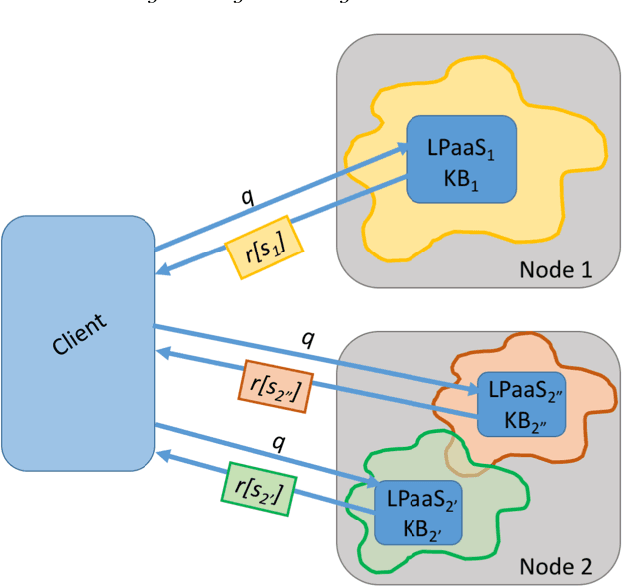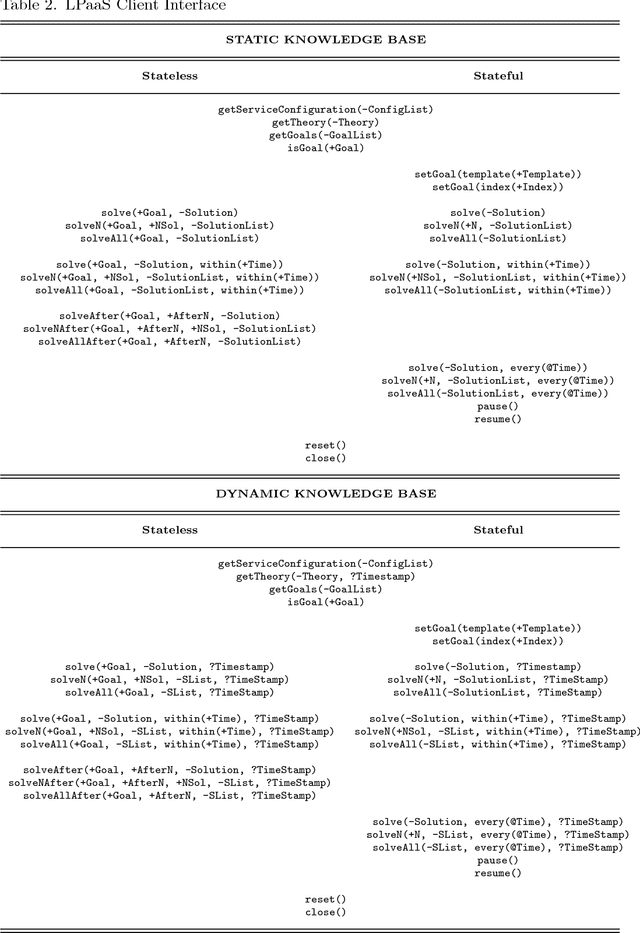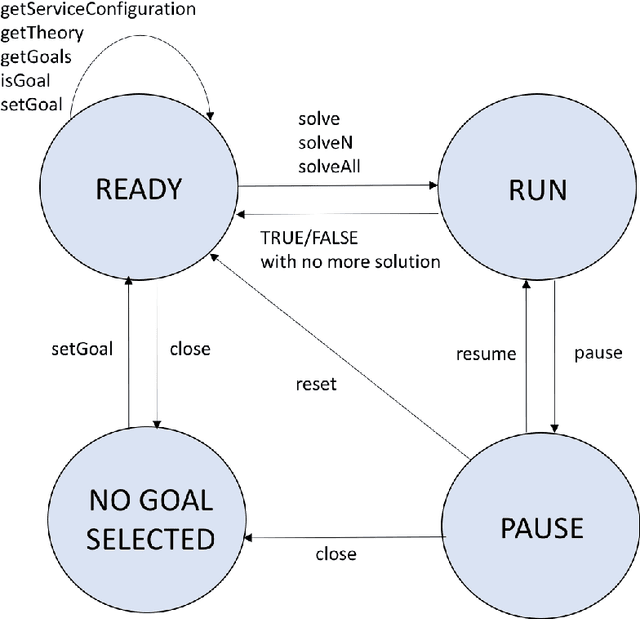Andrea Omicini
Integrating Machine Learning into Belief-Desire-Intention Agents: Current Advances and Open Challenges
Oct 23, 2025



Abstract:Thanks to the remarkable human-like capabilities of machine learning (ML) models in perceptual and cognitive tasks, frameworks integrating ML within rational agent architectures are gaining traction. Yet, the landscape remains fragmented and incoherent, often focusing on embedding ML into generic agent containers while overlooking the expressive power of rational architectures--such as Belief-Desire-Intention (BDI) agents. This paper presents a fine-grained systematisation of existing approaches, using the BDI paradigm as a reference. Our analysis illustrates the fast-evolving literature on rational agents enhanced by ML, and identifies key research opportunities and open challenges for designing effective rational ML agents.
Symbolic Knowledge Extraction and Injection with Sub-symbolic Predictors: A Systematic Literature Review
Jan 23, 2025Abstract:In this paper we focus on the opacity issue of sub-symbolic machine learning predictors by promoting two complementary activities, namely, symbolic knowledge extraction (SKE) and injection (SKI) from and into sub-symbolic predictors. We consider as symbolic any language being intelligible and interpretable for both humans and computers. Accordingly, we propose general meta-models for both SKE and SKI, along with two taxonomies for the classification of SKE and SKI methods. By adopting an explainable artificial intelligence (XAI) perspective, we highlight how such methods can be exploited to mitigate the aforementioned opacity issue. Our taxonomies are attained by surveying and classifying existing methods from the literature, following a systematic approach, and by generalising the results of previous surveys targeting specific sub-topics of either SKE or SKI alone. More precisely, we analyse 132 methods for SKE and 117 methods for SKI, and we categorise them according to their purpose, operation, expected input/output data and predictor types. For each method, we also indicate the presence/lack of runnable software implementations. Our work may be of interest for data scientists aiming at selecting the most adequate SKE/SKI method for their needs, and also work as suggestions for researchers interested in filling the gaps of the current state of the art, as well as for developers willing to implement SKE/SKI-based technologies.
Large language models as oracles for instantiating ontologies with domain-specific knowledge
Apr 05, 2024Abstract:Background. Endowing intelligent systems with semantic data commonly requires designing and instantiating ontologies with domain-specific knowledge. Especially in the early phases, those activities are typically performed manually by human experts possibly leveraging on their own experience. The resulting process is therefore time-consuming, error-prone, and often biased by the personal background of the ontology designer. Objective. To mitigate that issue, we propose a novel domain-independent approach to automatically instantiate ontologies with domain-specific knowledge, by leveraging on large language models (LLMs) as oracles. Method. Starting from (i) an initial schema composed by inter-related classes andproperties and (ii) a set of query templates, our method queries the LLM multi- ple times, and generates instances for both classes and properties from its replies. Thus, the ontology is automatically filled with domain-specific knowledge, compliant to the initial schema. As a result, the ontology is quickly and automatically enriched with manifold instances, which experts may consider to keep, adjust, discard, or complement according to their own needs and expertise. Contribution. We formalise our method in general way and instantiate it over various LLMs, as well as on a concrete case study. We report experiments rooted in the nutritional domain where an ontology of food meals and their ingredients is semi-automatically instantiated from scratch, starting from a categorisation of meals and their relationships. There, we analyse the quality of the generated ontologies and compare ontologies attained by exploiting different LLMs. Finally, we provide a SWOT analysis of the proposed method.
Decentralizing Coordination in Open Vehicle Fleets for Scalable and Dynamic Task Allocation
Jan 19, 2024


Abstract:One of the major challenges in the coordination of large, open, collaborative, and commercial vehicle fleets is dynamic task allocation. Self-concerned individually rational vehicle drivers have both local and global objectives, which require coordination using some fair and efficient task allocation method. In this paper, we review the literature on scalable and dynamic task allocation focusing on deterministic and dynamic two-dimensional linear assignment problems. We focus on multiagent system representation of open vehicle fleets where dynamically appearing vehicles are represented by software agents that should be allocated to a set of dynamically appearing tasks. We give a comparison and critical analysis of recent research results focusing on centralized, distributed, and decentralized solution approaches. Moreover, we propose mathematical models for dynamic versions of the following assignment problems well known in combinatorial optimization: the assignment problem, bottleneck assignment problem, fair matching problem, dynamic minimum deviation assignment problem, $\sum_{k}$-assignment problem, the semiassignment problem, the assignment problem with side constraints, and the assignment problem while recognizing agent qualification; all while considering the main aspect of open vehicle fleets: random arrival of tasks and vehicles (agents) that may become available after assisting previous tasks or by participating in the fleet at times based on individual interest.
Logic Programming as a Service
Sep 25, 2018



Abstract:New generations of distributed systems are opening novel perspectives for logic programming (LP): on the one hand, service-oriented architectures represent nowadays the standard approach for distributed systems engineering; on the other hand, pervasive systems mandate for situated intelligence. In this paper we introduce the notion of Logic Programming as a Service (LPaaS) as a means to address the needs of pervasive intelligent systems through logic engines exploited as a distributed service. First we define the abstract architectural model by re-interpreting classical LP notions in the new context; then we elaborate on the nature of LP interpreted as a service by describing the basic LPaaS interface. Finally, we show how LPaaS works in practice by discussing its implementation in terms of distributed tuProlog engines, accounting for basic issues such as interoperability and configurability.
 Add to Chrome
Add to Chrome Add to Firefox
Add to Firefox Add to Edge
Add to Edge